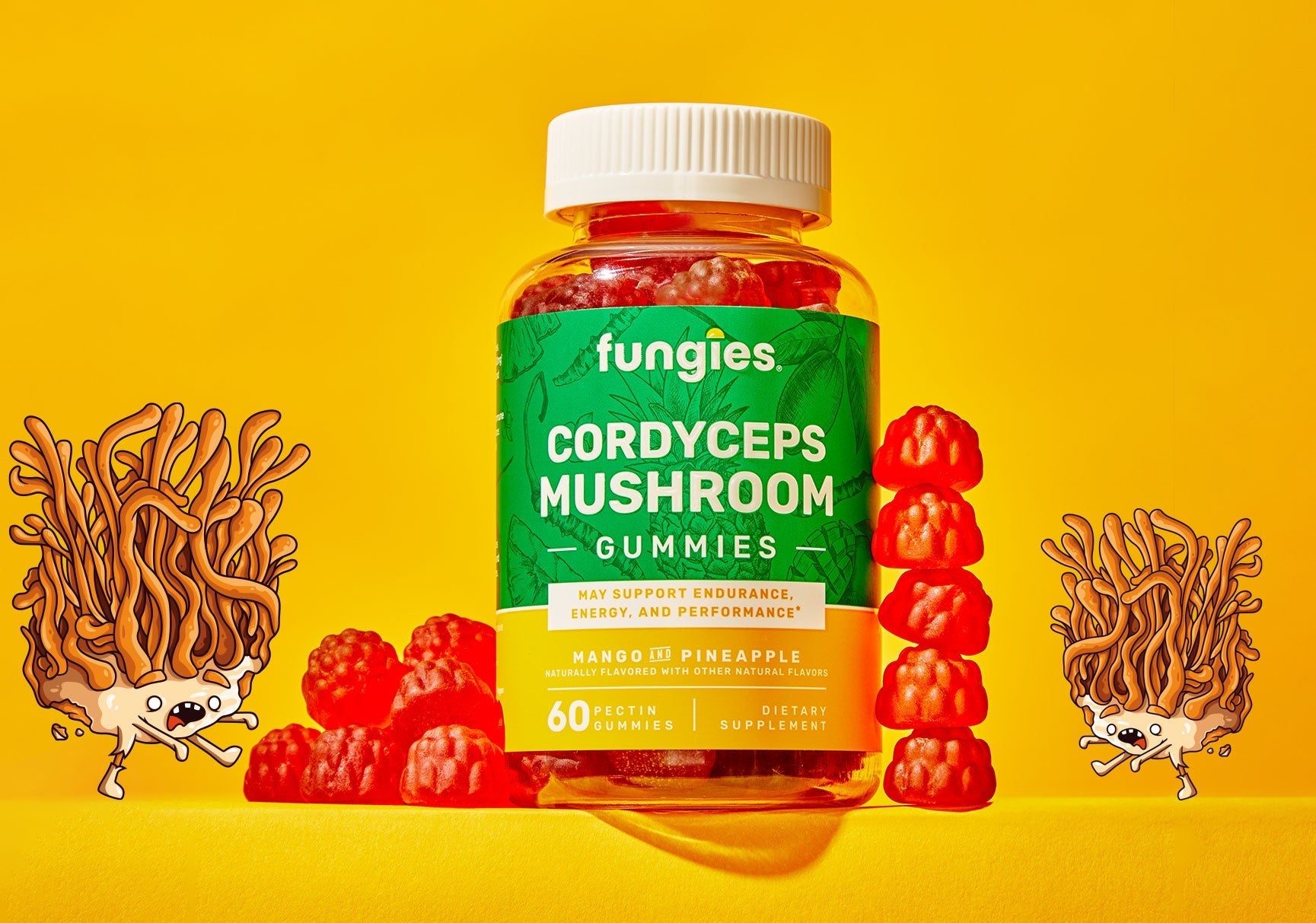I love a good post-apocalypse zombie story. Whether it be the Walking Dead, World War Z, or 28 Days later, something is fascinating about observing how human beings survive when part of the world population turns into flesh-eating zombies.
The latest show to add to the zombie zeitgeist is HBO's new series The Last of Us, based on a popular video game. But, the cause of the zombie "infection" this time is a bit different from other movies or series we have seen before; a fungus instead of a virus causes the zombies.
In the show, Cordyceps is the cause of the fungus-infected zombies. While the Cordyceps in the show are part of the same species, they are different from the functional mushrooms found in our delicious Cordyceps Gummies.
Not only is the Last of Us a fictional show, but at this time, Cordyceps only have the power to turn insects in remote parts of the planet into zombies. It is unlikely they will ever be able to jump species and do the same to humans. You are completely safe from becoming a zombie if you consume Cordyceps in the form of supplements or gummies.
Cordyceps: The Zombie Fungus
Cordyceps is a parasitic fungus; it needs to steal nutrients from insects or plants to reproduce. Some species of Cordyceps have evolved to inhabit the bodies of ants and other insects, using their bodies to create spores, as shown in this Planet Earth clip on BBC.
But there are hundreds of species of Cordyceps in nature. The type used for medicinal and functional purposes (found in our Fungies gummies) is Cordyceps militaris, typically cultivated using rice yeast. This type does not use living creatures to replicate.[1]
The zombie Cordyceps is in the same fungi family but in a different species called ophioCordyceps.[2] Due to the unique way they replicate, these types of Cordyceps are difficult to cultivate and not the kind that is typically used for human consumption.
Are Cordyceps Harmful to Humans?
The type of Cordyceps found in supplements used for centuries in Chinese medicine is not harmful to humans. There are many potential health benefits to Cordyceps, with few significant side effects.[3] Research has found that they have powerful antioxidant properties and may help support energy levels during exercise
But what about the zombie thing? Can Cordyceps evolve to control our brains like in the Last of Us? At this time, this scenario is pretty unlikely. Insect bodies are not the same as humans, particularly when it comes to body temperature. Most of the zombie fungi thrive at a much lower temperature, therefore, are unable to infect a body that is 98 degrees.[4]
Additionally, each fungus only infects a specific species of ant or insect. Like humans, they cannot jump between ant species, much less onto an entirely different species. And for humans, Cordyceps are quite beneficial. For now, we are safe from fungus zombies taking over the world.
Adding Cordyceps to Your Routine
While there are many ways to consume Cordyceps, taking a daily gummy is one of the simplest. Since Cordyceps are meant to give you energy, improve performance, and boost your endurance, it makes a great pre-workout supplement. A Cordyceps gummy is also a delicious addition to your morning routine to help you stay energized and focused throughout your day.
Regardless of what could bring about a zombie apocalypse, in the end, we are safe from becoming zombies controlled by fungus.
References
- Raethong, N., Wang, H., Nielsen, J., & Vongsangnak, W. (2020). Optimizing cultivation of Cordyceps militaris for fast growth and cordycepin overproduction using rational design of synthetic media. Computational and Structural Biotechnology Journal, 18, 1–8.
- Evans, H. C., Elliot, S. L., & Hughes, D. P. (2011). OphioCordyceps unilateralis: A keystone species for unraveling ecosystem functioning and biodiversity of fungi in tropical forests? Communicative & Integrative Biology, 4(5), 598–602.
- Das, S. K., Masuda, M., Sakurai, A., & Sakakibara, M. (2010). Medicinal uses of the mushroom Cordyceps militaris: current state and prospects. Fitoterapia, 81(8), 961–968.
- Gibbens, S. (2023, January 19). Could a parasitic fungus evolve to control humans? National Geographic. (Link)

